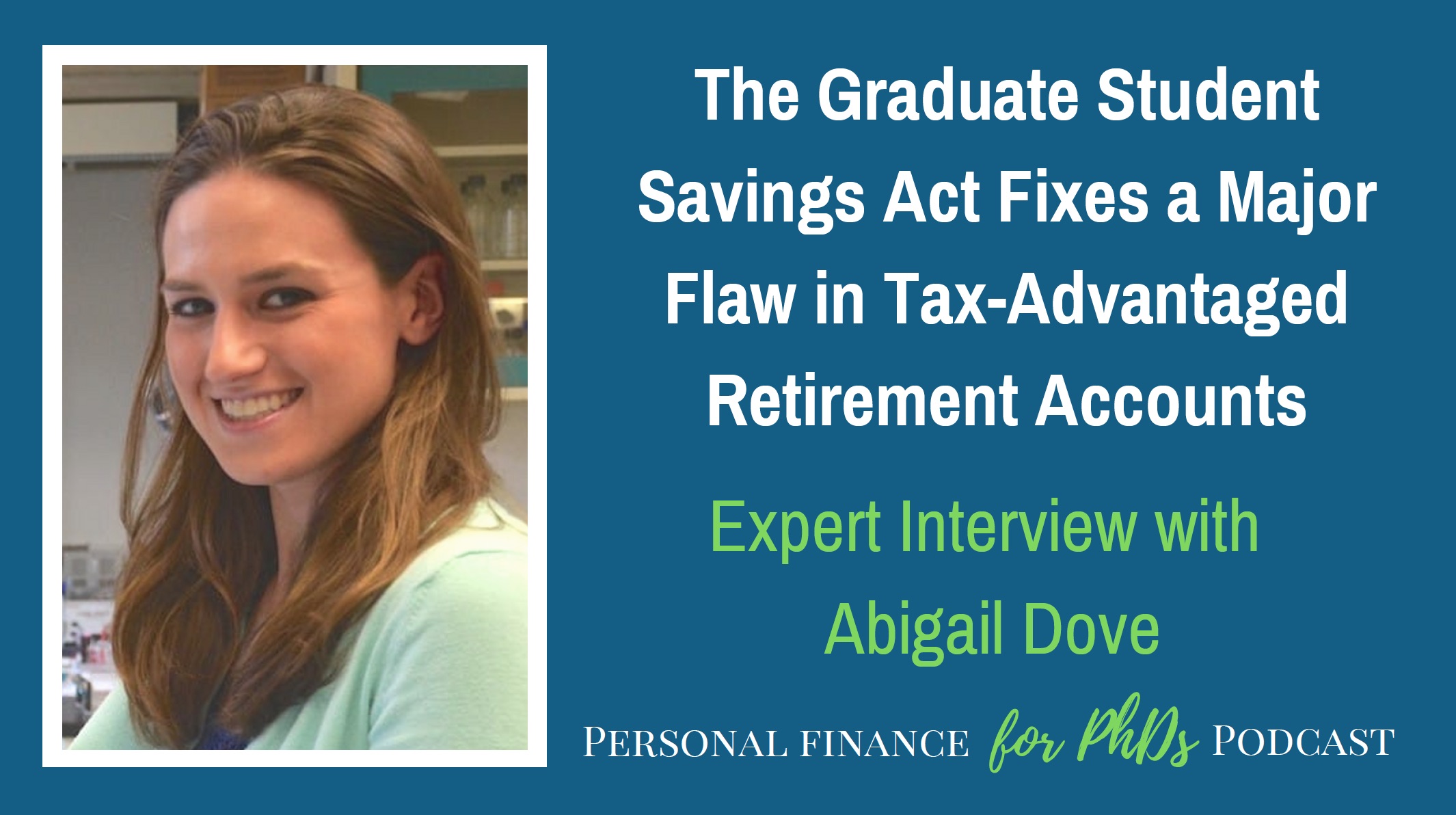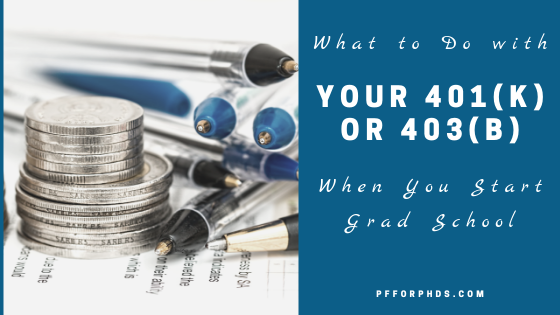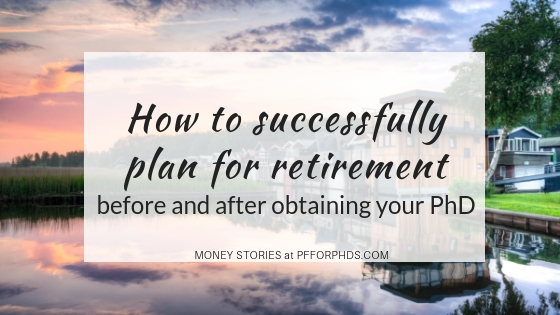In this episode, Emily explains the new legislation that allows non-W-2 fellowship income to be contributed to an Individual Retirement Arrangement (IRA). Up until 2019, fellowship or training grant income (reported on a Form 1098-T or Form 1099-MISC or not reported at all) was not eligible to be contributed to an IRA. Certain legislation, the Graduate Student Savings Act (GSSA), which fixes this problem, has been proposed a few times since 2016, but never passed. However, at the end of the 2019 Congressional session, the text of the GSSA was passed and signed into law as part of an omnibus spending bill (H.R. 1865). PhD trainees who are newly eligible to contribute to an IRA should consider their overall financial status and goals to determine whether to contribute and in what amount.
Links Mentioned in this Episode
- IRS Publication 590A (p. 6, old definition of taxable compensation)
- The Graduate Student Savings Act Fixes a Major Flaw in Tax-Advantaged Retirement Accounts
- House Resolution 1865
- IRS Publication 970 (p. 5, definition of fellowship)
- Everything You Need to Know about Roth IRAs in Graduate School
- One-on-One Financial Coaching
- The Wealthy PhD
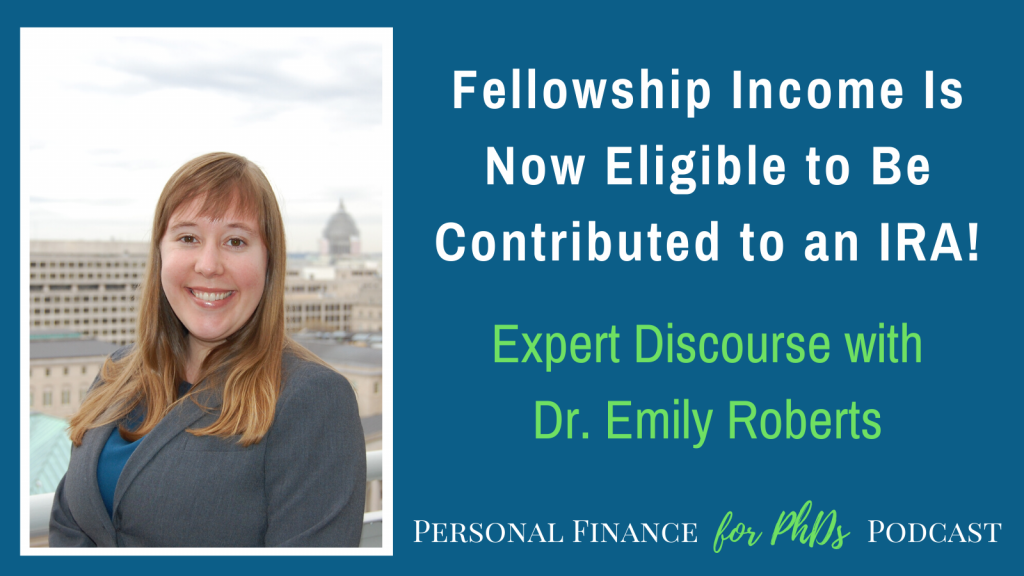
Intro
Welcome to the Personal Finance for PhDs podcast: a higher education in personal finance. I’m your host, Dr. Emily Roberts.
This is Season 4 Bonus Episode 1, and in this episode I will update you on recent legislation that has a major positive impact on the PhD trainee population.
Specifically, starting on January 1st, 2020, the definition of “taxable compensation” for the purpose of contributing to an individual retirement arrangement or IRA was updated to include taxable fellowship income not reported on a W-2.
That’s the takeaway point for those of you already in the know about this issue: Your taxable non-W-2 fellowship income is now eligible to be contributed to an IRA. You can open a Roth or traditional IRA on January 1 or following and put in the $6,000 maximum contribution if you like, assuming your taxable fellowship income is at least $6,000 in 2020. If that’s all you need to know, feel free to stop this episode now, but please share it with your peers as you go.
In the rest of this episode, I will review the prior definition of taxable compensation and how it negatively impacted the PhD trainee community and then explain the recent legislation that changed the definition for 2020 and forward. At the end of the episode, I’ll point you to a few resources to help you in your investing journey.
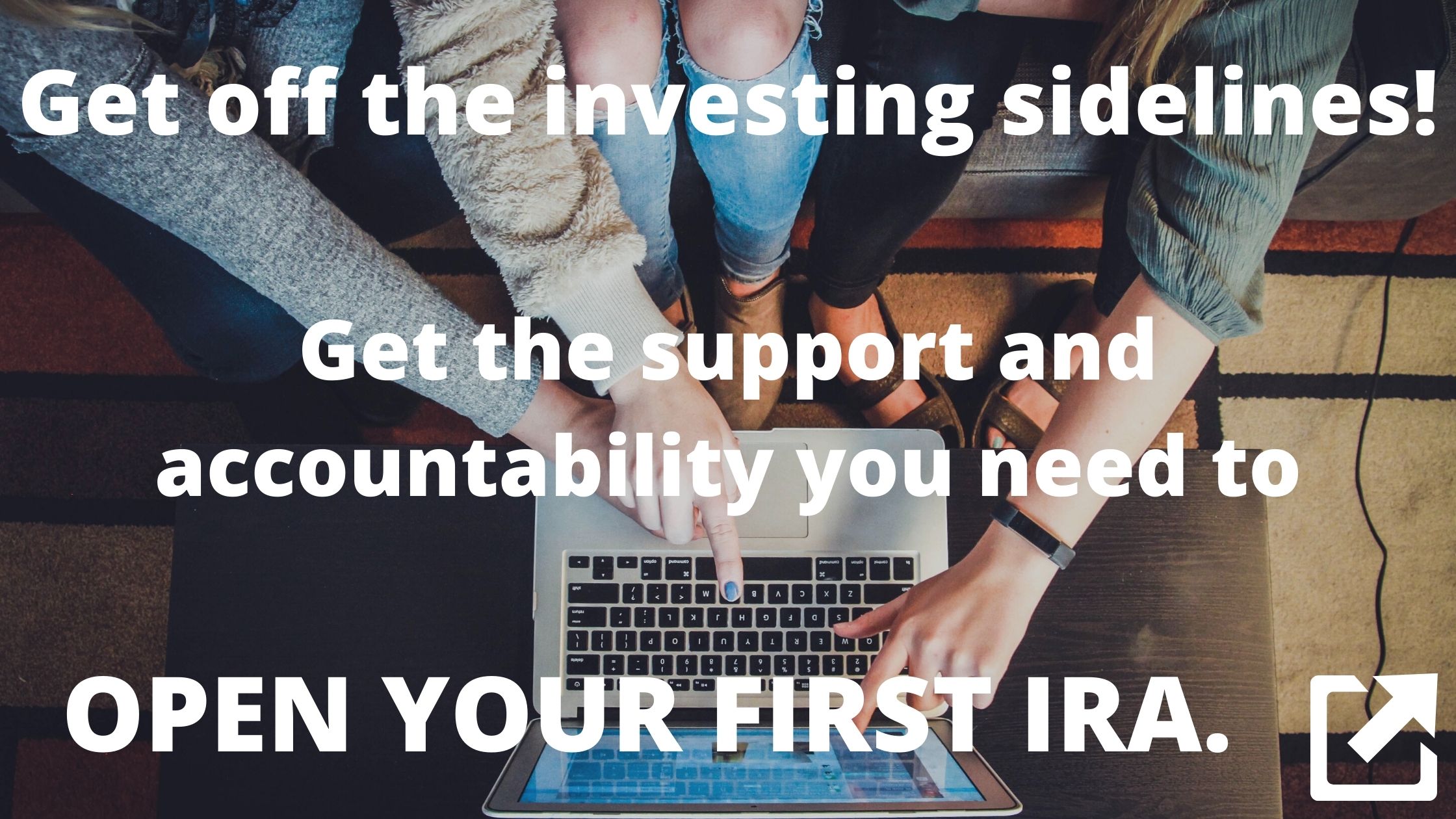
1 The Prior Definition of Taxable Compensation
The federal government offers a few different tax incentives to encourage individuals to invest for their retirement.
When you invest money inside a tax-advantaged retirement account, you don’t have to pay tax on the growth in your investments as you would for a regular taxable investment account and you also can take a tax break on either the amount of money you contribute to the account or the amount of money you withdraw from the account in your retirement.
Most of the tax incentives are offered through workplace-based retirement accounts, such as a 401(k) in the private sector or a 403(b) in the nonprofit sector. However, there is one type of account that can be opened outside of your workplace, and that is the Individual Retirement Arrangement or IRA.
You as an individual can go to just about any brokerage firm and open an IRA, and it’s not at all connected to where you work. The contribution limit for an IRA is $6,000 per year if you’re under age 50.
The restriction the federal government places on IRAs is that you have to have what’s called “taxable compensation” in a given calendar year to contribute to an IRA. Your overall income also has to fall under certain limits to contribute.
The old definition of taxable compensation was as follows. Think of a two-column list. The left-hand column is types of income that are considered taxable compensation, and the right-hand column is types of income that are not considered taxable compensation. I’m not giving you the exhaustive lists, but just an idea.
In the left-hand list, taxable compensation, you had:
- W-2 income, such as you would receive from being an employee,
- Self-employment income,
- Alimony,
- Etc.
In the right-hand list, not taxable compensation, you had:
- Rental income,
- Interest and dividend income,
- Pension or annuity income,
- Taxable scholarship and fellowship income not reported on a W-2,
- Etc.
This was specified in the tax code. So if your fellowship or training grant income was reported on any kind of tax form other than a W-2, such as a 1098-T or 1099-MISC, or not reported at all, it was not considered taxable compensation for the purposes of contributing to an IRA.
That means that if you went an entire calendar year with only non-W-2 fellowship income, you would not have been able to contribute to an IRA in that calendar year.
This was really tough news for a lot of people in our PhD community. The irony was that students and postdocs who won outside fellowships often received a higher income than their employee peers, so they perhaps had more money available to invest, but they were barred from using an IRA to do so.
Now, there were a couple workarounds. Keep in mind that the contribution limit to an IRA is $6,000 or the amount of your taxable compensation, whichever is lower.
First, the calendar year and the academic year do not line up. So if your funding source switched between W-2 and non-W-2 between academic years, you would still have at least a degree of IRA eligibility in that calendar year.
Second, if you were married and your spouse had taxable compensation, you could contribute to a spousal IRA, up to their amount of taxable compensation or the overall $12,000 per year limit for two IRAs, whichever was lower.
Third, if you had a side hustle, that self-employment or W-2 income would give you some eligibility.
As a last resort, if you truly didn’t have access to an IRA in a calendar year, you still had the option to invest for retirement in a regular taxable investment account. If you chose a tax-efficient investing strategy, such as passive index investing, you probably would not have much of an additional tax burden due to the favorable tax rates for long-term capital gains and qualified dividends. However, this tax advantage was not widely recognized.
The effect of this law was that many PhD students and postdocs who had the financial means to invest for retirement were prevented from contributing to IRAs, and they likely didn’t try to invest instead in a taxable account. The law sent the message that PhD trainees were not supposed to be investing for retirement and were not worthy of being extended the same tax break that employees were. This had an overall dampening effect on the financial ambition of PhD trainees, which in my opinion was a very serious problem.
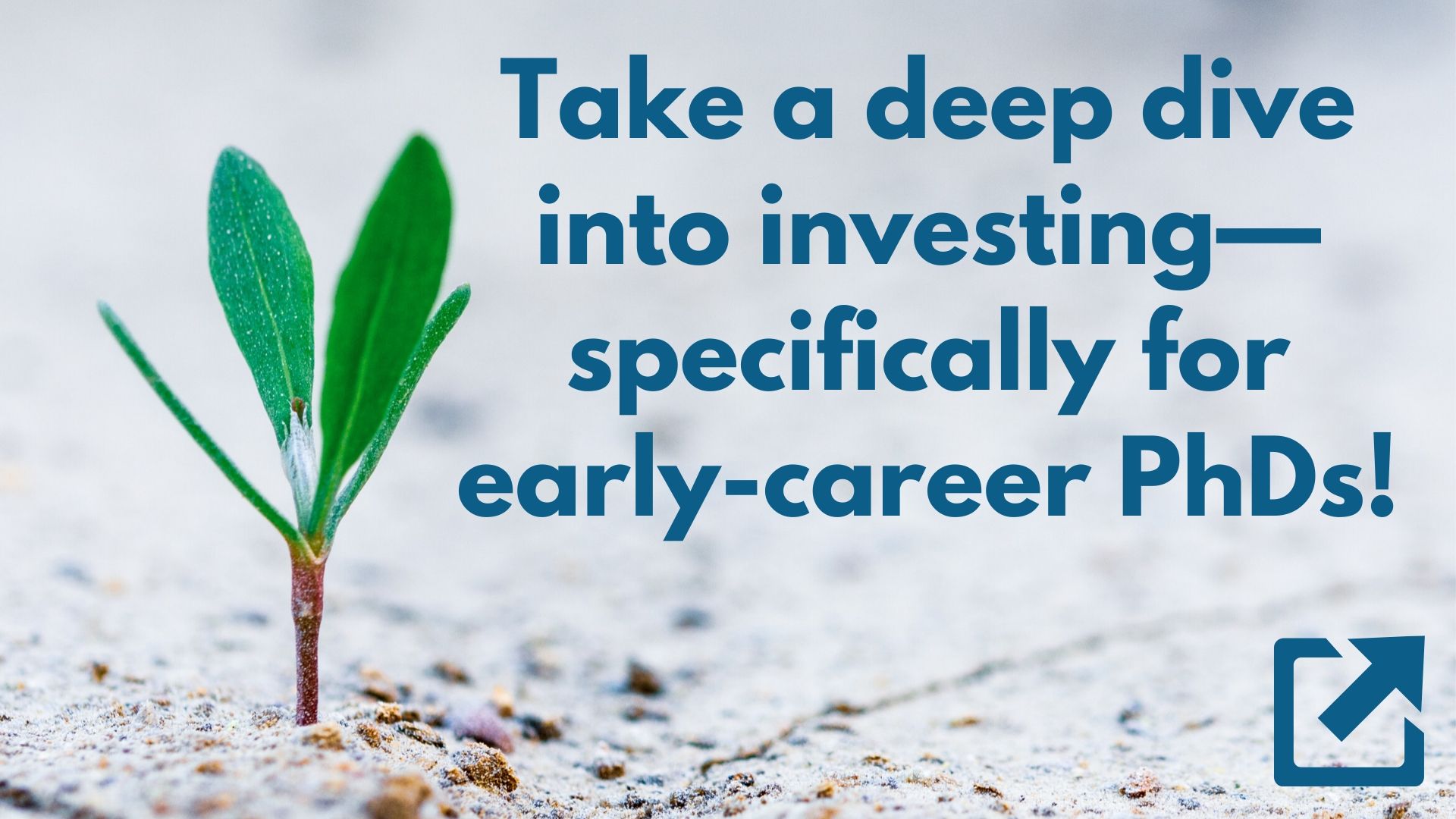
2 The Legislation That Changed the Definition
All that has changed now. In essence, the new legislation moved taxable scholarship and fellowship income not reported on a W-2 from the right-hand column to the left, from being explicitly excluded from the definition of taxable compensation to being explicitly included in the definition for graduate students and postdocs.
The origin of this legislation was the bipartisan Graduate Student Savings Act or GSSA, first introduced in 2016 in the Senate by Senators Elizabeth Warren and Mike Lee and in the House by Congressmen Joe Kennedy and Luke Messer; however, it was not passed at that time. The GSSA was re-introduced in 2017 and 2019 and eventually included in the bipartisan SECURE Act in 2019, none of which passed.
You can learn more about the GSSA in Season 4 Episode 9 of this podcast, in which I interview Abby Dove, a graduate student who as a science policy fellow worked on getting a scientific advocacy group to endorse the GSSA.
Ultimately, in the closing days of the 2019 session, the text of the GSSA was included in an omnibus spending bill along with the rest of the SECURE Act, passed by both chambers of Congress, and signed into law by the president.
I’ll read to you exactly the change that was made in House Resolution 1865, and I’ll link it from the show notes.
“SEC. 106. CERTAIN TAXABLE NON-TUITION FELLOWSHIP AND STIPEND PAYMENTS TREATED AS COMPENSATION FOR IRA PURPOSES.
(a) In General.—Paragraph (1) of section 219(f) of the Internal Revenue Code of 1986 is amended by adding at the end the following: “The term ‘compensation’ shall include any amount which is included in the individual’s gross income and paid to the individual to aid the individual in the pursuit of graduate or postdoctoral study.”
(b) Effective Date.—The amendment made by this section shall apply to taxable years beginning after December 31, 2019.”
There you have it! The definition of “taxable compensation” for the purposes of contributing to an IRA now includes taxable fellowship income for graduate students and postdocs. However, by my reading, it seems that taxable post-baccalaureate fellowships have not been included in the definition.
That language of “aid the individual in the pursuit of graduate or postdoctoral study” reflects the definition of a fellowship from IRS Publication 970, which reads quote “A fellowship grant is generally an amount paid for the benefit of an individual to aid in the pursuit of study or research” end quote.
3 What to Do Now
This change is really good news for the PhD trainee community overall, but it may or may not materially change anything for you. If you now have access to an IRA in 2020 when you otherwise would not have, what should you do? I imagine that PhD trainees fall into one of three groups.
First, some PhD trainees should not be investing for retirement right now, so having access to an IRA doesn’t really matter. This is the case if you don’t have the available cash flow to invest or have other, higher-priority financial goals, such as paying off high-interest debt or saving up cash.
Second, some PhD trainees are ready and able to invest but don’t have pre-existing savings or investments. Maybe they have recently finished paying off certain types of debt or saving up sufficient cash, and they now have cash flow available for investing. This is the group that can open up an IRA and set up a regular savings rate into it; this is called dollar cost averaging. With a $6,000 per year limit, your regular monthly contribution to the IRA can be up to $500, which would be a great savings rate for a graduate student or postdoc.
Third, some PhD trainees have already been saving or investing outside of an IRA and are eager to contribute a lump sum of money to an IRA. You are permitted to contribute the full $6,000 in one go if that’s your preference. Then, throughout the year, you can direct your ongoing savings rate to a taxable investment account or other financial goals.
One question I’ve already received a few times is whether fellowship recipients will be able to contribute to a 2019 IRA. In general, you are allowed to contribute to your prior year’s IRA up until tax day of the subsequent year, and this is a strategy I recommend to anyone who has not yet maxed out their IRA for the prior year. However, since the text of the bill says the change will go into effect after December 31, 2019, my reading is that the old definition of taxable compensation will apply to 2019 IRAs and the new definition will apply to 2020 IRAs.
If you’re not sure what your unique next steps should be or if what I spoke about today even applies to you, I am available to coach you. I can’t recommend specific funds, but we can work together to determine your next financial goal, increase your savings rate, and figure out which high-level investing strategy is most appropriate for you.
You can set up one-on-one coaching with me by going to PFforPhDs.com/coaching. Another excellent option is to participate in my upcoming program, The Wealthy PhD, through which you will receive course content, individual and group coaching, and community with your peers. You can find more information about The Wealthy PhD at PFforPhDs.com/wealthyPhD.
I would be absolutely delighted to shepherd fellowship recipients who have never before invested through the process.
As for additional resources, I have many, many articles on investing on my website, and I have linked several updated ones from the show notes. You can find the show notes for this episode at PFforPhDs.com/s4be1 for season 4, bonus episode 1.
For international students and postdocs, I would also recommend listening to Season 4 Episode 17 of this podcast, which answers the question of whether it is permissible and advisable for international students, postdocs, and workers to invest while living in the US. Keep in mind that I recorded this episode prior to the definition of taxable compensation changing.
Finally, if you need to take a big step back because you were surprised to hear that your fellowship and potentially scholarship income is taxable, I recommend listening to Season 2 Bonus Episode 1 of this podcast, titled Do I Owe Income Tax on My Fellowship?
Thank you for joining me for this special bonus episode. Please spread the good news about IRA eligibility to your peers also receiving fellowship or training grant income by sharing this episode with them!

Outtro
Listeners, thank you for joining me for this episode.
PFforPhDs.com/podcast is the hub for the Personal Finance for PhDs podcast. There, you can find links to all the episode show notes and a form to volunteer to be interviewed. I’d love for you to check it out and get more involved.
If you’ve been enjoying the podcast, here are four ways you can help it grow:
One, subscribe to the podcast and rate and review it on Apple podcast, Stitcher, or whatever platform you use.
Two, share an episode you found particularly valuable on social media or with your PhD peers.
Three, recommend me as a speaker to your university or association. My seminars covered the personal finance topics PhDs are most interested in, like investing, debt repayment, and taxes.
Four, subscribe to my mailing list at PFforPhDs.com/subscribe. Through that list, you’ll keep up with all the new content and special opportunities for Personal Finance for PhDs.
See you in the next episode, and remember, you don’t have to have a PhD to succeed with personal finance—but it helps.
The music is Stages of Awakening by Podington Bear from the Free Music Archive and is shared under CC by NC.


